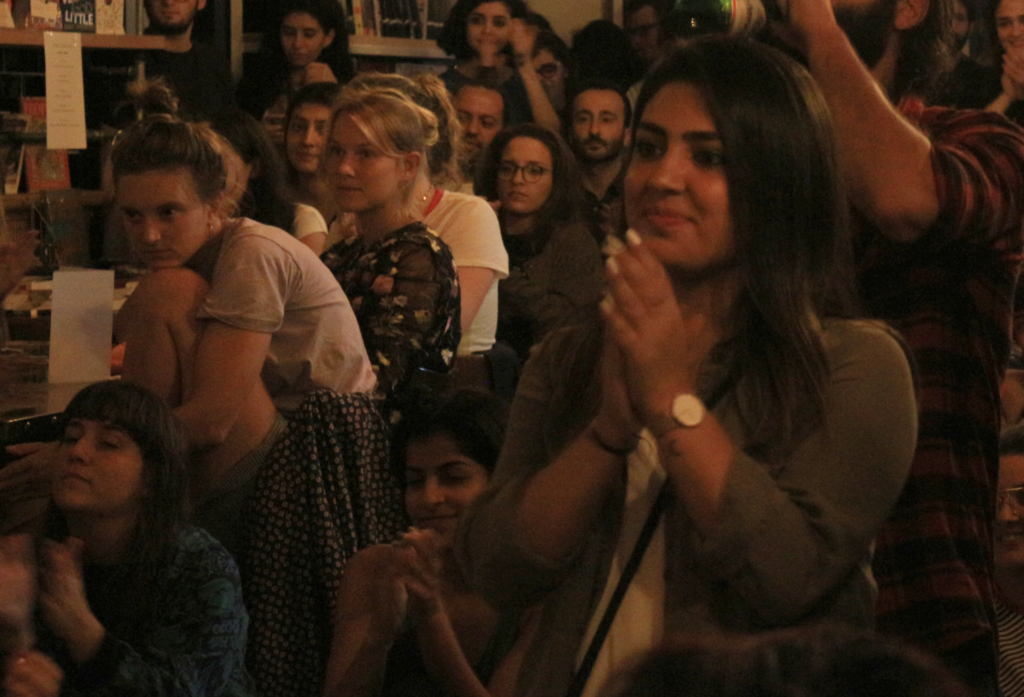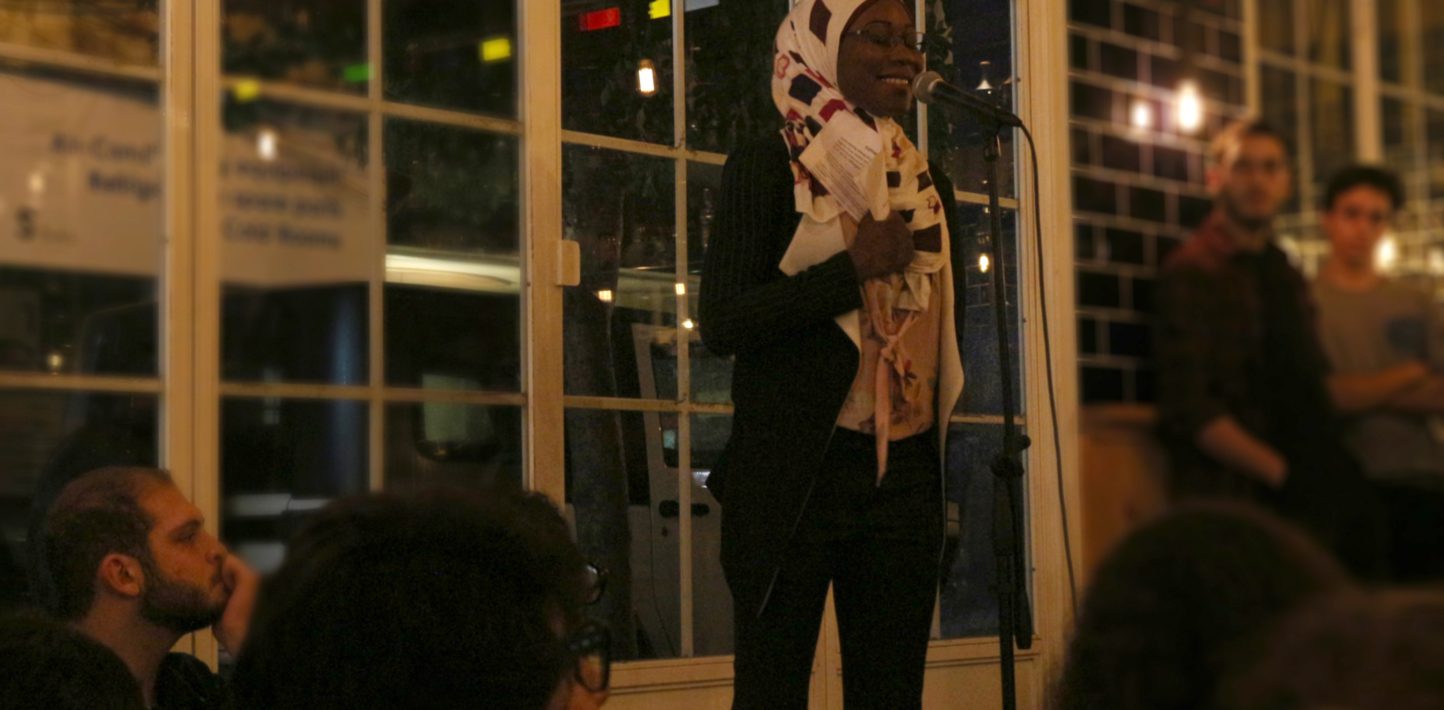Youth from Beirut take action to abolish Lebanon’s Kafala system after participating in a Human Rights Education Workshop.
In a small community bookshop and coffee shop – snug within the hip area of Mar Mikhael, Beirut – university students, youth, activists and migrant workers gathered to share stories of oppression and resilience in an event put together by Amnesty youth volunteers.
It all started last April after we attended a Human Rights Education workshop with Amnesty centred around facilitation for human rights issues, that’s where we all met
Paul Samrani, youth volunteer
Towards the end of the Human Rights workshop, the participants were told to organise an action plan to tackle an issue they felt was relevant in their country. “So, we decided to work on migrant workers’ rights and the Kafala system* in Lebanon. The Kafala system is more than just a labour issue, it’s a mental health issue, a women’s rights issue, it’s a sociocultural issue- it’s more than just one.”
Through constant meetings over the coming months working closely with the HRE team at Amnesty International’s regional office in Beirut, the youth volunteers started planning participatory ways in which to engage with the larger youth community to bring awareness to migrant workers’ rights.
“Lots of organisations and NGOs have dedicated many years to working on the issue, so we wanted to collaborate and find ways to engage with different audiences about the topic. We thought we would make the most impact with university students and youth activists focused on various issues. Our goal was to tap into engaged youth to get them to understand the Kafala system and how it discriminates against migrant workers and how they can help towards abolishing it.”
The group finally launched their first event, a storytelling night, aimed at engaging youth on the topic. They collaborated with Beirut based story-telling initiative, Cliffhangers, and together with the help of the migrant community centre, they invited workers to come forward and speak about their stories. The workers were offered coaching and support by Cliffhangers to help with their communications skills and worked on their speech to deliver a good performance.

Two migrant workers came forward and delivered heartfelt speeches. The speakers hit a note with most of the audience as they spoke about the injustices they face and the reality of their work under the system. “It was very inspirational, the first speaker even received a standing ovation,” Samrani recalls. “Lebanese people are aware of the issue, but many are often blind to the discriminatory policies that the Kafala System entails. Bettering the conditions under which migrant workers work and live goes way beyond saying ‘please and thank you’ – bottom line is, they’re workers with rights.”
“it was a great turn-out, the room was filled with about 50 people from university students, to migrant workers and activists. After the migrant workers shared their stories, the audience didn’t want the event to end, and the show was followed by an open mic for another hour.”
What’s more, the group had a chance to openly discuss their goals to abolish the Kafala system and as a result, they received around 20 new registrants who were inspired to get involved and take action and become Amnesty international members.
Following the success of the first event, the group aims to continue exploring participatory and alternative approaches to raising awareness, engaging with the migrant worker community and re-shaping attitudes.
“We plan to collaborate further with the HRE team and country campaigner at Amnesty International’s Regional Office in Beirut as well as with a local theatre group through interactive theatre to further raise awareness. Through the HRE approaches we’ve learned, we plan to continue to engage new-comers and find ways to shift behaviours and challenge attitudes.”
* Migrant domestic workers who come to Lebanon for employment do so under the Kafala sponsorship system that enables their employers to exercise significant control over their lives. To enter the country, every migrant domestic worker in Lebanon must have a ‘sponsor’, who must also be his or her employer. Migrant workers need their sponsor’s permission to change or leave jobs and are at risk of deportation without any process to challenge such decision if their sponsors decide to withdraw their sponsorship.
To stay up to date on the latest news and information on Human Rights Education across the globe, subscribe to our blog, and follow us on Facebook.


